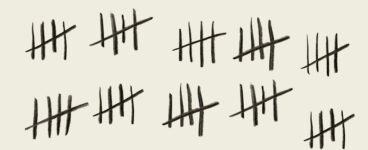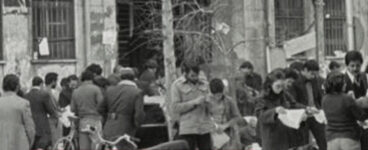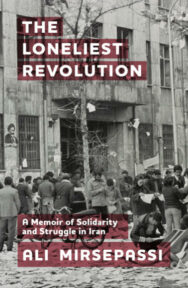‘I was completely weak, unable to stand or move, let alone understand what had just happened.’
In October 1978, a day that started like any other for Ali Mirsepassi – full of anti-Shah protests – ended in near death. He was stabbed and dumped in a ditch on the outskirts of Tehran for having spoken against Khomeini. In The Loneliest Revolution, sociologist and activist Mirsepassi digs up this and other painful memories to ask: How did the Iranian revolutionary movement come to this? How did a people united in solidarity and struggle end up so divided? In this extract, read Mirsepassi’s first-hand account of his remarkable near-death encounter.
The Loneliest Revolution
By Ali Mirsepassi
Published by Edinburgh University Press
Tehran, 1978
A fall day in 1978 forever altered my life. A day that started like any other tore asunder the life I had worked years to build for myself and my country. For the past forty years, the ghost of that fateful day has trailed my shadow. Today, March 5 2020, as I write these words in the early morning light, sitting in a café on Bleecker Street in Manhattan, the shock of that day still thrums in my mind like a buzzing broken record, while the corresponding images, dark and painful to behold, flash uncontrollably before my eyes.
I have only recently disclosed the details of that day to my family and friends, the people who know me best. It has taken me decades to expose the nefarious underbelly of my political biography to them. Spurring me on has been the realization that burying the ugly face of politics smothers with it hope for change. Neither goodness nor peace can dwell in my mind so long as this darkness remainsundisturbed by the light of revelation. It is time to let the ‘unthought’—those memories I have tried so long to cast into oblivion—speak.
I never intended to hide what happened that day, but the fear that it would overtake and distort memories of my precious, if turbulent, youth led me to push it out of my mind. After all, this event transpired just as I and countless other Iranians were on the cusp of realizing the impossible: toppling a police state indifferent to our wills, hopes, and ambitions. I could see the freedom we had so long been denied materializing as protestors poured daily into Tehran’s city streets. Everything I had hoped for, social change on an unimaginable scale directed by and for Iranians, lay within our reach, and all that remained was for us to seize it. Only as we were turning the corner into a future free of the Pahlavi state’s modern autocracy did I learn, tragically and violently, that our hopes were fodder for a power struggle that would once again sideline and silence us. When people nurture dreams manipulated by the powerful, any one of them might fall victim to their political caprices.
It was late October 1978 when I almost became such a casualty. I had just pulled off what was perhaps my greatest stunt as a student activist. In front of hundreds of my classmates at the National University in northern Tehran, I delivered a speech arguing for the continuation of an ongoing university strike, a direct challenge to a demand Ayatollah Ruhollah Khomeini had issued just the prior day. University students all over Iran had had been striking for six to eight weeks by this time, refusing to attend classes and occupying university grounds and buildings, bringing whole campuses to a standstill. Khomeini’s sudden decree that students and faculty should cease the strikes and immediately allow for the resumption of normal university operations confused most of us, and it was only his supporters gathered among us who left his command unchallenged. The crowd settled on the idea of a debate to keep tensions from growing, and I was elected by the pro-strike faction to make the case for keeping university operations halted. I accepted the assignment with a sense of solemn responsibility and considerable anxiety. My speech stressed the need to maintain unity and a common purpose by making political decisions ourselves. We, as students, should think for ourselves, and do what we think is reasonable. I concluded that if we listened to our hearts and minds, we would vote for the continuation of the strikes. My arguments proved a success, and I left the campus relieved the crowd had voted to continue the strike.
As the last spectators trickled out of the campus, a vast and powerful silence settled over the land. I walked toward the vacant lot where I had parked my old red Paykan. Once the car entered my field of vision, a speck dissolving into the horizon, I hurried toward it, guided by an intuition that arrived seconds too late. Before I could even pull the car keys from my pocket, the world came crashing down on me. When I opened my eyes hours later, there was nothing but the darkness of the ditch I found myself in. Several unfamiliar faces peered down at me. Seeing my eyes flutter open, they yelled: ‘He’s not dead!’ It seemed my ability to hear had alone survived the fall. I was completely weak, unable to stand or move, let alone understand what had just happened.
When I next woke, night had fallen, and I was resting in a hospital. The nurse and later a doctor joked that it was divine providence or else extreme luck that had saved me. I had been stabbed twenty-one times and yet survived. A few children playing in a village outside of Tehran, they explained, had noticed a car stop at a local garbage dump. Out from the car climbed a man. He opened the trunk, pulled a body from it, and dumped it into a ditch before quickly driving away. The children informed their parents of this, who immediately called for an ambulance. At the hospital, doctors surveyed the damage done. Some wounds were superficial, others more serious, and a great deal of blood had been lost. But none had been fatal. After being bandaged and recovering from the initial shock, I was released from the hospital that same night. I did not feel mentally prepared to go home and explain the bruises and bandages on my body to my parents. Frail and in poor physical shape, I took a taxi instead to my friend Mozafar’s apartment in central Tehran, where I stayed for several days. And with that, the revolution ended for me two or three months earlier that it did for most others.
The Loneliest Revolution by Ali Mirsepassi is published by Edinburgh University Press, priced £14.99.
ALSO IN THIS ISSUE

 Why We’re Publishing The Zekameron
Why We’re Publishing The Zekameron
‘As for the book itself, it important to emphasise that it is not memoir, not fact, it is fiction – …

 The Loneliest Revolution
The Loneliest Revolution
‘I was completely weak, unable to stand or move, let alone understand what had just happened.’













